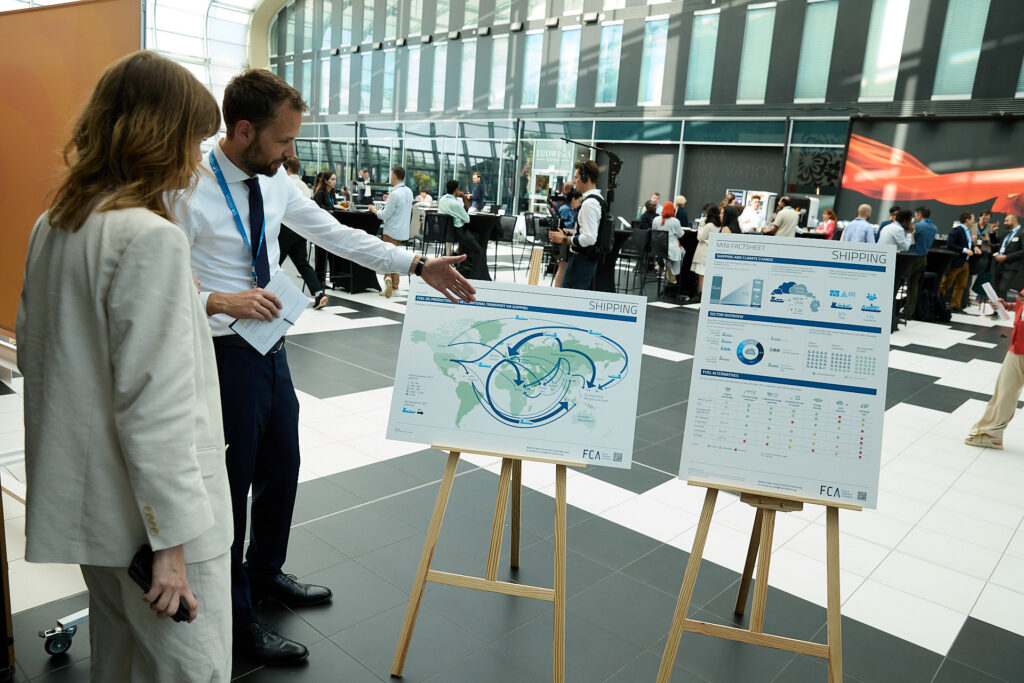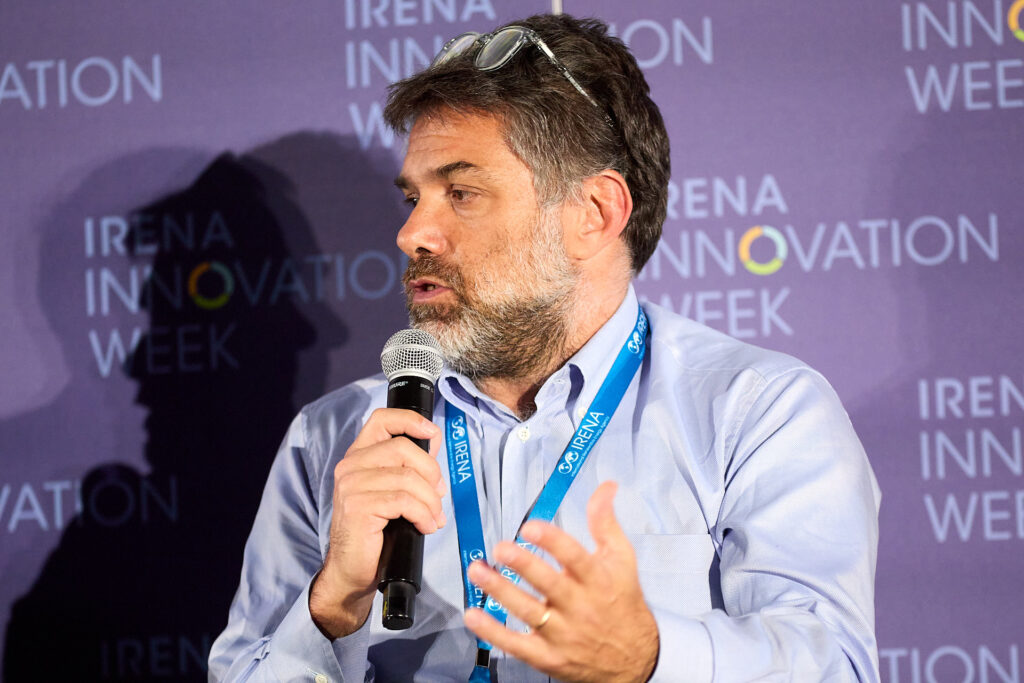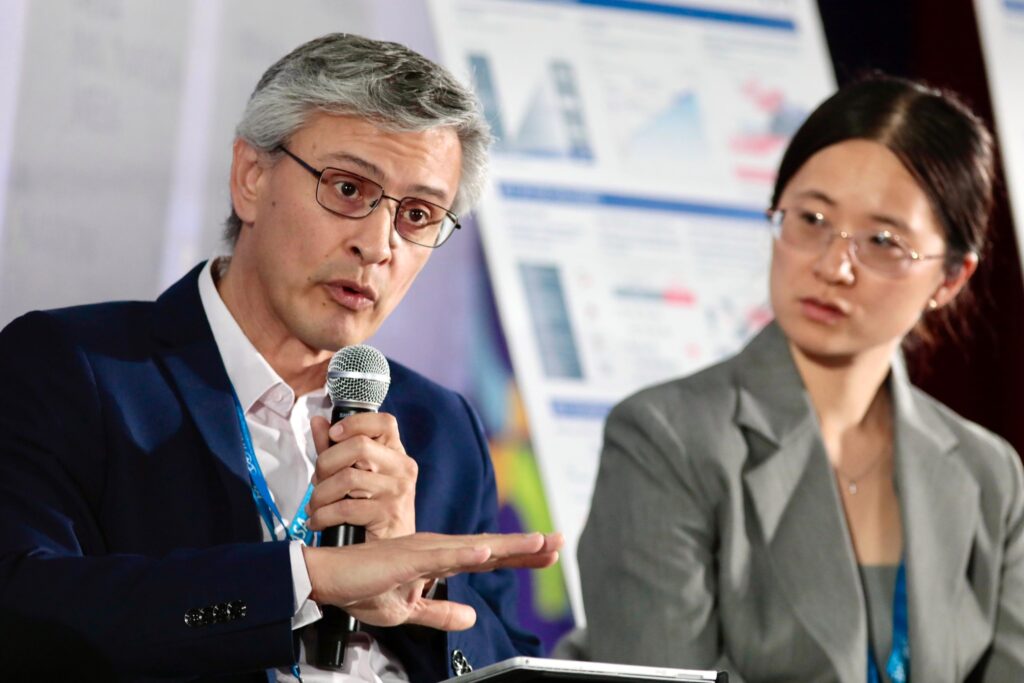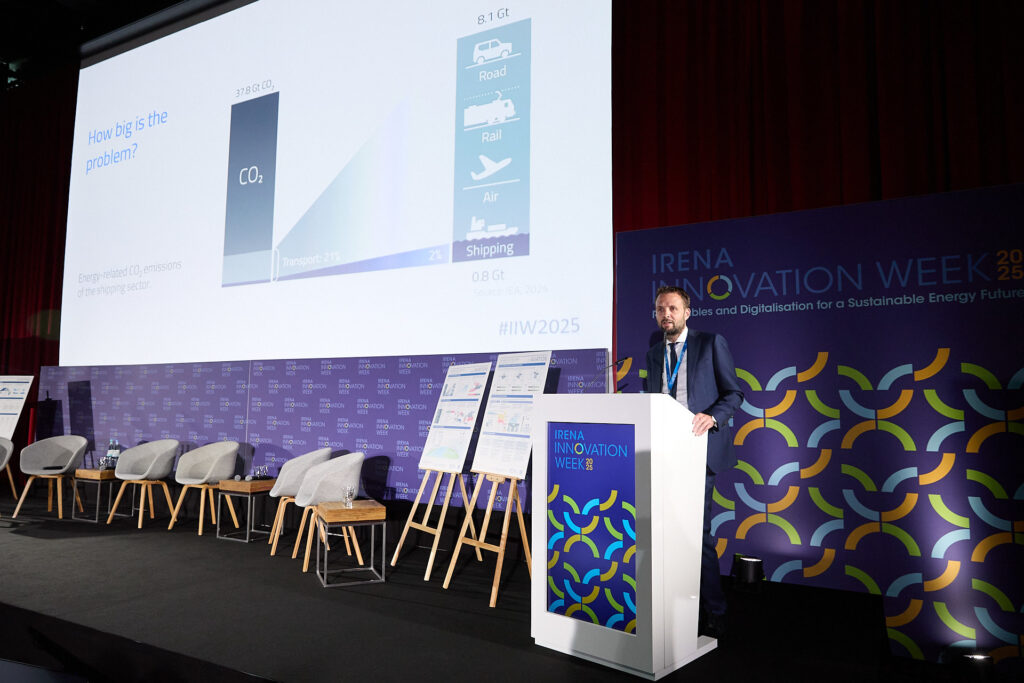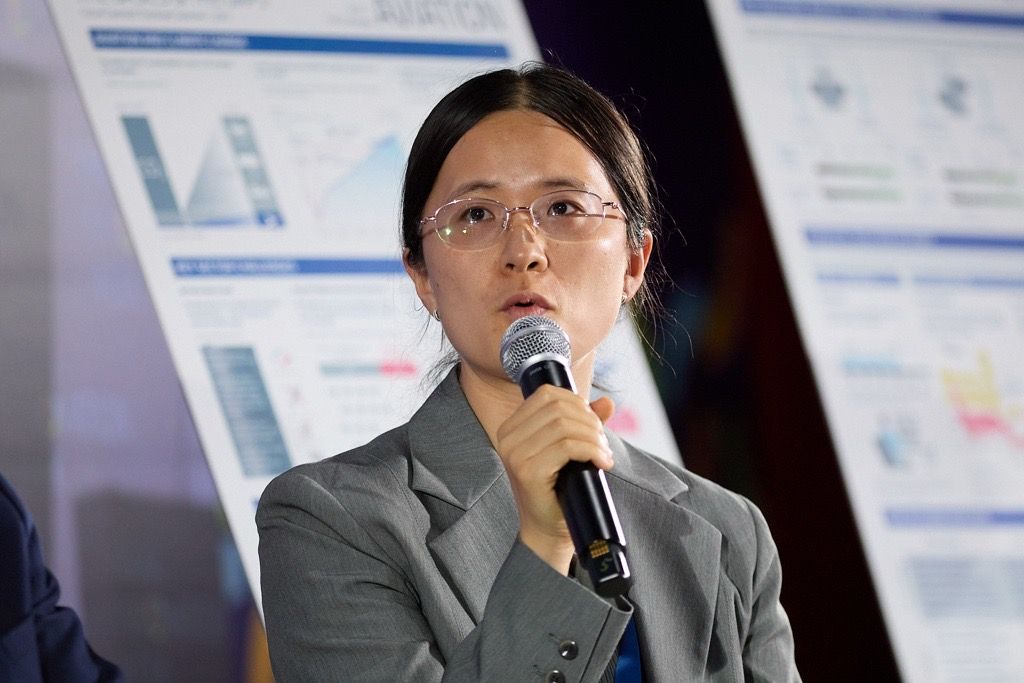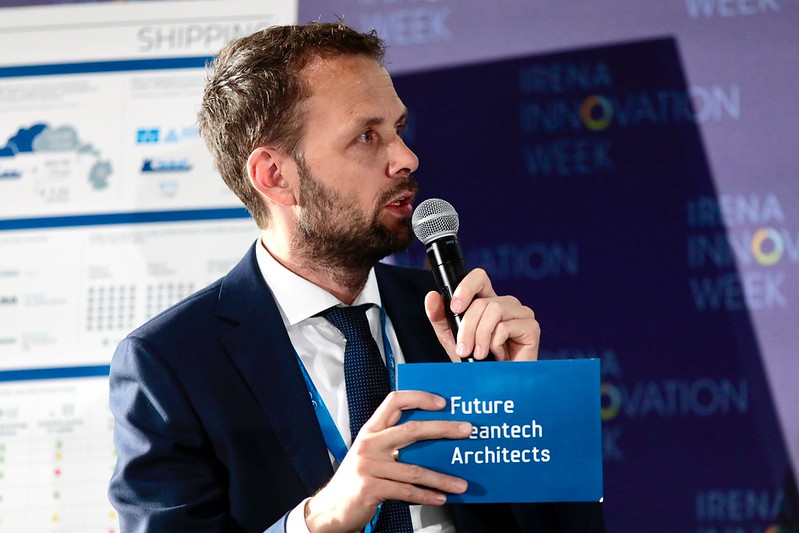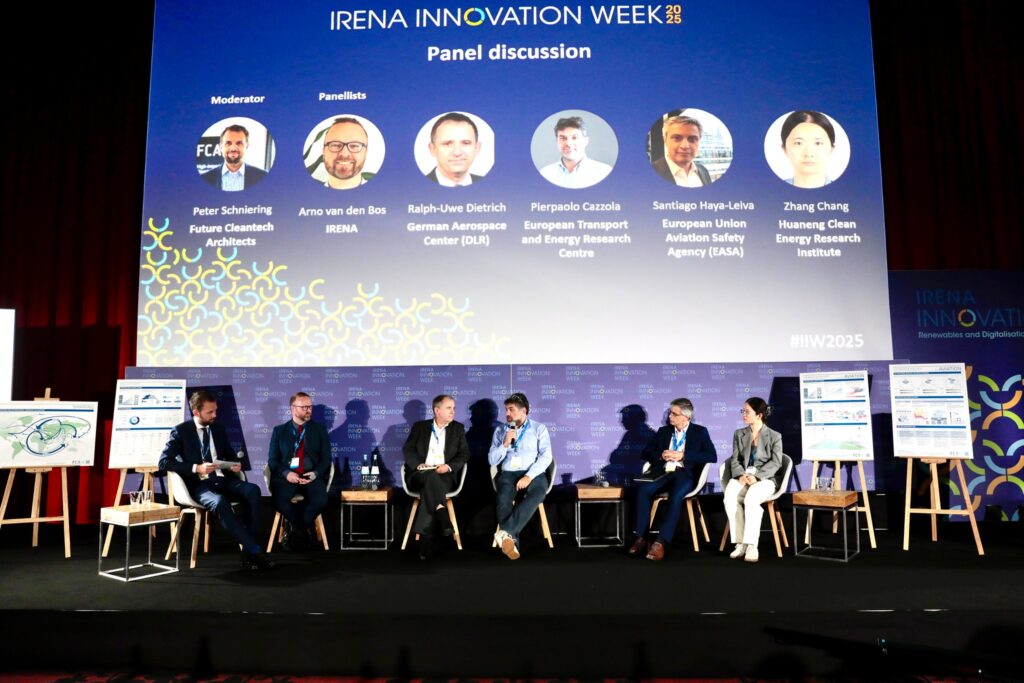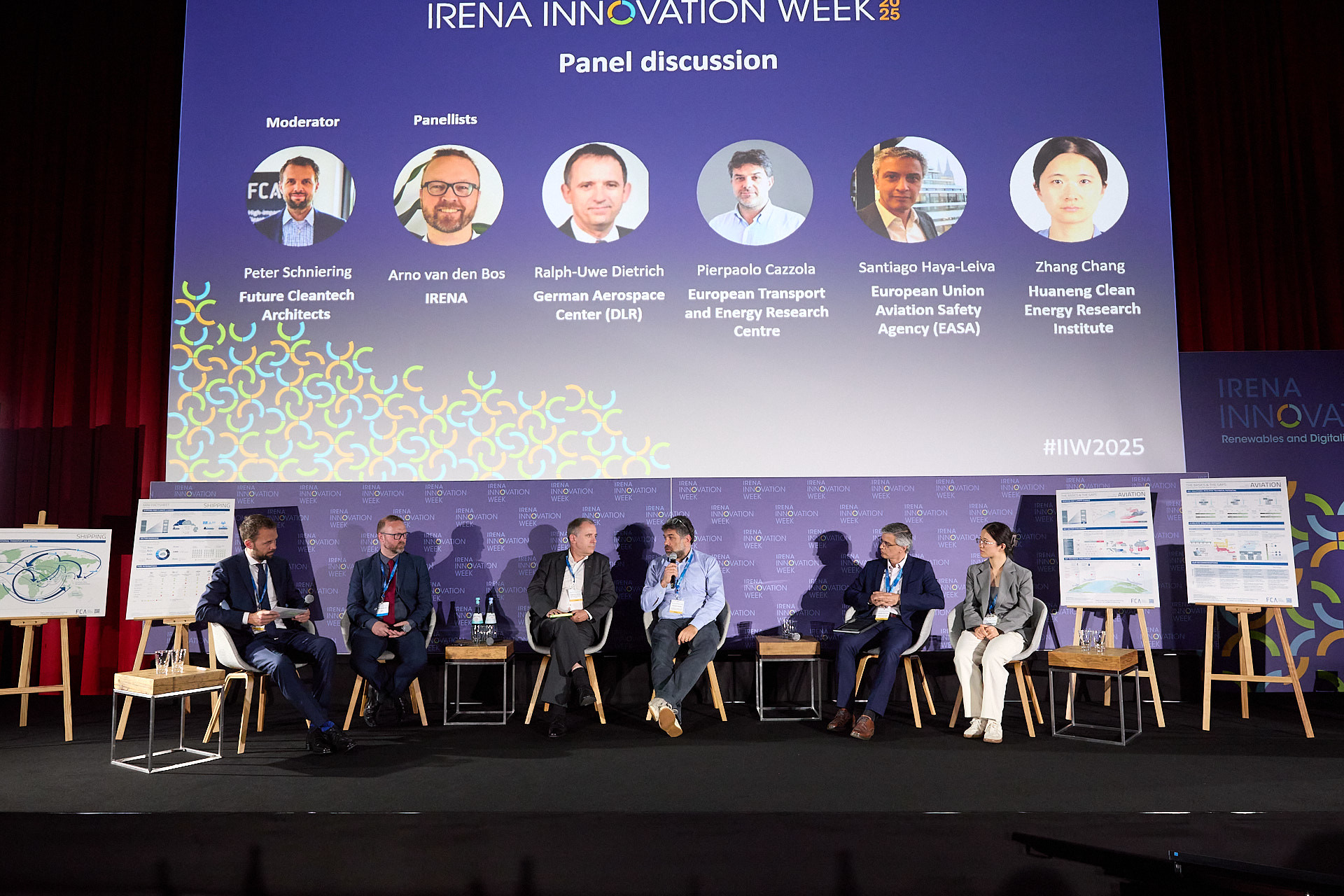Both shipping and aviation contribute significantly to global greenhouse gas emissions: Their energy-related CO2 emissions stand at 2% and 2.5%, respectively.
The assets involved – cargo ships, planes, and the infrastructure around them – have lifespans of 25 years and more. That adds to the urgency of decarbonizing the shipping and aviation sectors.
These were some of the points our founder and CEO, Peter Schniering, made at an IRENA Innovation Week event that we were proud to co-host with and at the invitation of IRENA.
In the session “Infrastructure for sustainable fuels for shipping and aviation”, Arno van den Bos of IRENA further set the scene by presenting four essential decarbonization strategies. Zhang Chang of the Huaneng Clean Energy Research Institute then zoomed in on China and the role of green hydrogen in decarbonizing shipping and aviation there, through e-fuels such as ammonia and methanol.
A panel discussion also including Pierpaolo Cazzola of the Institute of Transportation Studies at the University of California, Davis’ European Transport and Energy Research Center, Santiago Haya Leiva of the EASA – European Union Aviation Safety Agency, and Ralph-Uwe Dietrich of the German Aerospace Center (DLR) and moderated by Peter Schniering further explored the different decarbonization pathways and the multifaceted challenges associated with them, ranging from the size of investments required to safety concerns, as well as regulatory complexity.
Read more in this summary from IRENA here!
